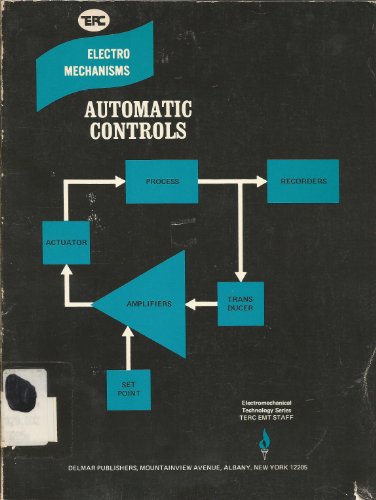
Electromechanisms: Automatic Controls
by Roy D. Byrd
Publisher: Delmar Publishers 1972
ISBN/ASIN: B0006C0T4E
Number of pages: 215
Description:
These materials are intended to provide a meaningful experience with automatic controls for students of modern technology. The topics included provide exposure to basic principles of control systems, transducers, actuators, amplifiers, and controllers.
Download or read it online for free here:
Download link
(multiple formats)
Similar books
 Feedback Systems: An Introduction for Scientists and Engineers
Feedback Systems: An Introduction for Scientists and Engineersby Karl J. Astrom, Richard M. Murray - Princeton University Press
An introduction to the basic principles and tools for the design and analysis of feedback systems. It is intended for scientists and engineers who are interested in utilizing feedback in physical, biological, information and social systems.
(21785 views)
 Control Theory: From Classical to Quantum Optimal, Stochastic, and Robust Control
Control Theory: From Classical to Quantum Optimal, Stochastic, and Robust Controlby M.R. James - Australian National University
These notes are an overview of some aspects of optimal and robust control theory considered relevant to quantum control. The notes cover classical deterministic optimal control, classical stochastic and robust control, and quantum feedback control.
(12646 views)
 Chaotic Systems
Chaotic Systemsby Esteban Tlelo-Cuautle - InTech
This book presents a collection of major developments in chaos systems covering aspects on chaotic behavioral modeling and simulation, control and synchronization of chaos systems, and applications like secure communications.
(11463 views)
 Distributed Control of Robotic Networks
Distributed Control of Robotic Networksby Francesco Bullo, Jorge Cortes, Sonia Martinez - Princeton University Press
This introductory book offers a distinctive blend of computer science and control theory. The book presents a broad set of tools for understanding coordination algorithms, determining their correctness, and assessing their complexity.
(12662 views)